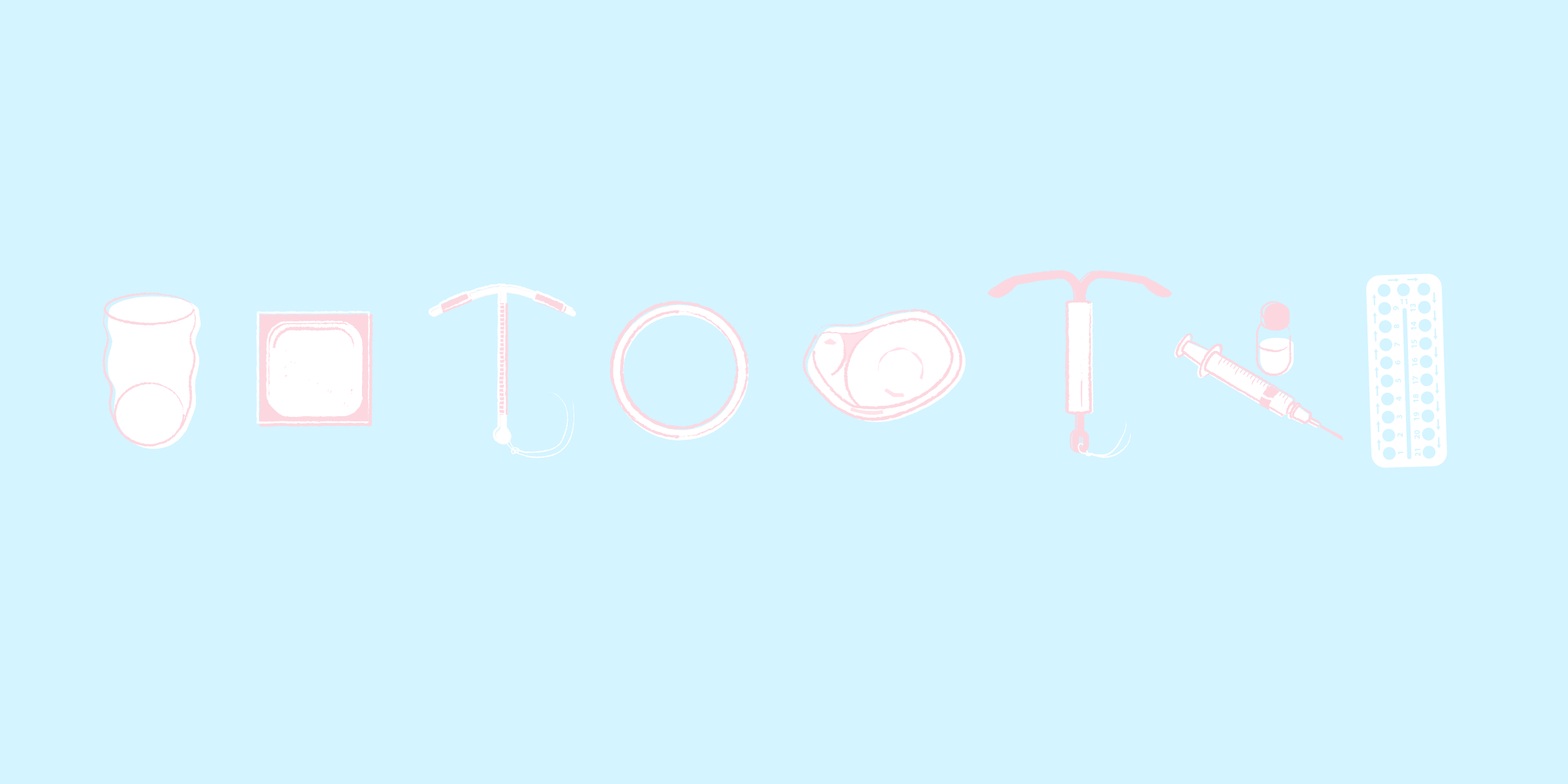Key Takeaways
- The postpartum period is an intense but wonderful time that gives you and your baby a chance to bond and recover.
- With emotional understanding, conscious self-care, and a strong social network, you can experience this special phase as relaxed as possible and emerge stronger.
- This article offers practical tips to help you and your baby get through the first few weeks after the birth while also finding time for your relationship and personal needs.
Have you been wondering how to best get through the first few weeks after your baby is born? The postpartum period is a special time full of new experiences, physical changes and emotional challenges.
This phase, which extends over the first six to eight weeks after the birth, is crucial for your recovery and for getting to know your baby. During the postpartum period, your body undergoes important healing processes while you simultaneously get used to your new role as a mother.
In this article, you will learn 10 practical tips to help you relax during your postpartum period – from self-care and bonding with your baby to activating your support network.
Understanding emotional changes
The first few weeks after giving birth not only bring physical changes, but also significant emotional changes. During this sensitive phase of the postpartum period, you will experience a real emotional rollercoaster, which is completely normal.
Coping with hormonal changes
After the birth, your body experiences a dramatic drop in hormones. The levels of the hormones estrogen and progesterone, which are elevated during pregnancy, fall abruptly. This rollercoaster ride of hormones begins immediately after the birth and can last for several weeks. The levels of estrogen, which normally stabilize moods in the brain and counteract depression, drop particularly sharply.
Recognizing and overcoming the baby blues
So-called baby blues affect around 50-85% of all mothers. It typically develops between the second and fourth day after birth and usually disappears within 14 days.
Typical signs of baby blues are:
Frequent crying for no apparent reason
Increased sensitivity and irritability
Mood swings
Exhaustion and lack of energy
Lack of concentration
Sleep disorders
Normalizing emotional swings
It is important to understand that these emotional swings are a normal reaction of your body. The physical and mental stress of having a baby and then taking care of it is enormous. Studies show that 100% of women* experience hormonal changes during this time.
It is especially important to get support from your partner, family and friends during this phase. Make sure to take time for yourself to recharge your batteries. Talking to other (new) mothers can also be very helpful to discuss your experiences during the postpartum period.
Important: If the symptoms do not subside after a few weeks or even worsen, you may be experiencing postpartum depression. In this case, it is advisable that you contact your gynaecologist.
Building a relationship with your baby
Developing a close relationship with your baby is one of the most important aspects of the postnatal period. This special bond, also known as bonding, doesn't just begin after the birth; it continues to develop during the pregnancy.
Bonding in the first few weeks
The first hours and days after birth are especially valuable for bonding. Scientific studies show that up to 20% of mothers initially have difficulty forming a bond with their baby. Here are proven ways to strengthen your connection with your baby:
Maintain skin contact – especially in the first two hours after birth
Do gentle baby massages
Make eye contact
Talk or sing to your baby
Responding sensitively to their needs
Developing your intuition
Your parental intuition is a natural ability that develops over time. Studies show that parents have the skills to understand their baby's body language. Trust that you will learn to interpret your baby's signals better and better.
Long before your baby cries, it will show its needs through small signs. For example, moving its head quickly or chewing on its fists indicates hunger.
Find common routines
A structured daily routine gives your baby security and orientation. Observe your baby consciously for a few days – after a short time you will recognize from the pitch of his voice when he is tired, hungry or bored.
Use this to develop a gentle routine that is based on your baby's basic needs:
sleep
feeding
play and interaction
Important: a routine should not be restrictive, but should provide support and orientation. Introduce rituals that suit you and your baby – for example, a certain melody when changing nappies or dimmed lights at bedtime.
Remember: the bond with your child develops individually. Don't put yourself under pressure, but give yourself and your baby the time you need to get to know each other.
Redefining your partnership
The birth of a child marks the beginning of a new phase not only as parents but also as a couple. Statistics show that many couples experience this transition as a challenge – about 50% report significant changes in their relationship during the postpartum period.
Communication in the new situation
Open and honest communication is now more important than ever. Studies show that a lack of communication is one of the main reasons for feeling “out of touch”. Here are some proven communication tips for the postpartum period:
Schedule daily “mini-conversations” of at least 5 minutes
Address feelings and needs openly
Listen actively without judging
Talk about topics other than the baby
Share the tasks fairly
Sharing the tasks fairly is the basis for a happy relationship with a new baby. Experts recommend making a written plan. Keep a record for at least two weeks: Who does what and how long does it take?
When sharing the tasks, bear in mind:
Take account of personal strengths and preferences
Be able to really hand over responsibility
Remain willing to compromise
Show appreciation with honest praise
Cultivate togetherness despite the baby
Experts agree: a partnership should not be neglected despite having children. Studies show that couples who don't make time for each other put their relationship at risk in the long term.
Important: before you plan to be together, each partner should have enough “me time”. Only when your own “me tank” is full does it make sense to move on to “we time”.
Practical tips for more togetherness:
Plan regular short breaks
Call each other by their first names instead of “mom” and “dad”
Accept support from family or friends
Establish small rituals, such as breakfast together
The frequency of the time together is less important than the quality. Even small moments of attention can strengthen your bond and consolidate you as a team in the postpartum period.
Prioritize self-care
Self-care in the postpartum period is not a luxury, but a necessity for your health and that of your baby. Studies show that mothers who consciously practice self-care are less susceptible to infections and have more stable emotions after the postpartum period.
Acknowledge your own needs
Your body has done a great job – creating and delivering a life for nine months. Now it is important to listen to your body's signals. The most important pillars of self-care are:
Getting enough sleep – especially when the baby is sleeping
Staying hydrated
Eating a balanced, nutritious diet
Getting gentle exercise
Getting emotional support
Managing stress
Incorporating relaxation methods
Relaxation is an essential part of recovery. It's important to remember that it's not about learning complicated techniques, but rather integrating simple, practical methods into your daily routine.
Proven relaxation techniques for the postpartum period include:
Conscious breathing – even a few minutes can have a calming effect.
Gentle stretching exercises
Short meditation sessions
Progressive muscle relaxation
Light yoga exercises after approval by the midwife
Organize time out
Experts recommend that you regularly take some “me time”. These breaks don't have to be long – even short breaks can have a big impact. Studies show that mothers who take regular breaks are more relaxed when dealing with stressful situations.
Practical tips for your time out:
Use your baby's bedtime for yourself
Plan “pajama days” when the night was exhausting
Let the household be the household for a change
Accept offers of help from family and friends
Remember: a competent midwife can be a valuable source of support during this time. Not only will she help you to recover physically, but she will also be at your side to answer any questions you may have about self-care.
Observe yourself carefully in the first few weeks and introduce small, positive habits. It's never too late to establish good self-care routines. Even the smallest changes will help you to recover better and recharge your batteries in the postnatal period.
Activate your social network
A strong social network is the key to a relaxed postnatal period. Studies show that three out of four people between the ages of 25 and 44 regularly use social media, which opens up new possibilities for support.
Involving family and friends
The first few weeks after the birth are a sensitive time when you need a lot of support. Experts recommend appointing a central person from your family to pass on important information to others. This helps you to focus on your baby without being overwhelmed by too many phone calls.
To effectively involve your family and friends,
communicate clear visiting times
accept practical offers of help
Delegate everyday tasks
Plan for regular support
Important: Spontaneous visits should be avoided in the first week. Your support network should understand that you need time to find a new rhythm.
Get to know other mothers
Exchanging experiences with other mothers is particularly valuable because they have similar experiences. Studies show that this contact provides important emotional support and reduces feelings of loneliness.
Here are some ways to get in touch with other mothers:
Visit mother-child groups in your area
Take part in baby classes (e.g. baby swimming)
Use regular walks for spontaneous contacts
Visit breastfeeding groups or postnatal recovery classes
Give yourself time to build new contacts. Many mothers report that they initially felt like intruders, but found their feet after a short time.
Use online communities
Digital platforms offer you flexible support around the clock. 89% of young adults already use social media, making them a valuable resource in the postpartum period.
Advantages of online communities:
Advice from other mothers on the same level
Emotional support in the “you're not alone” mode
Practical tips for everyday life
Flexible exchange, even at night
There are various ways to find support online:
Topic-specific Facebook groups
Local WhatsApp groups
Special mom apps and forums
Instagram communities
Note: Online exchanges should supplement personal contacts, not replace them. The combination of digital and real-life networks offers you the best support in the postpartum period.
Remember that the “hard days” often come only after the initial excitement about the baby has subsided. A well-established social network will carry you through this time and give you the security you need.
Conclusion
The postpartum period is a time full of challenges and wonderful new experiences. With the right strategies, you can experience this special phase in a relaxed and conscious way. Your feelings are completely normal – whether you are feeling joy, overwhelmed or insecure.
Remember: your relationship with your baby develops step by step, while you are also re-shaping your relationship and paying attention to your own needs. A strong social network will give you the support you need.
The first few weeks after the birth are precious and unique. Take all the time you need to find your feet in your new role as a mother. With each day, you will become more confident and familiar in your dealings with your baby.
References & Literature
- Bundeszentrale für gesundheitliche Aufklärung (BZgA). Familienplanung.de.
- Deutsche Gesellschaft für Gynäkologie und Geburtshilfe (DGGG), Deutsche Gesellschaft für Hebammenwissenschaft (DGHW). Die vaginale Geburt am Termin (S3-Leitlinie). AWMF-Registernr.: 015-083. 2020.
- Gemeinsamer Bundesausschuss (G-BA). Mutterschafts-Richtlinien.
- Harder, U. et al.: Wochenbettbetreuung in der Klinik und zu Hause, 5. aktualisierte Auflage, Hippokrates Verlag, 2022
You might also be interested in these articles
Schwangerschaft
The ultimate guide: What are the different types of birth and their specifics?5 Min. Lesezeit
Schwangerschaft
Creating a birth plan made easy: Your checklist for a stress-free birth8 Min. Lesezeit





